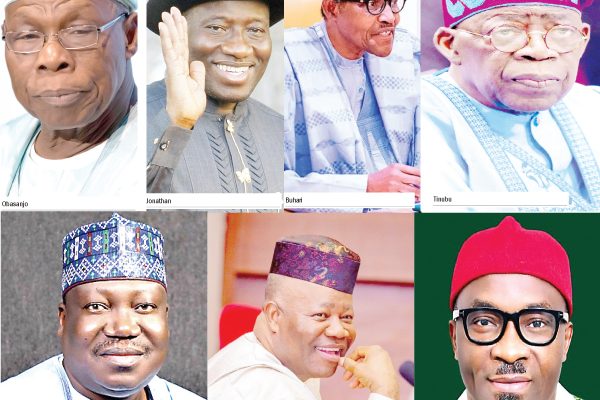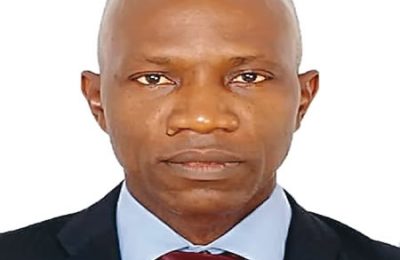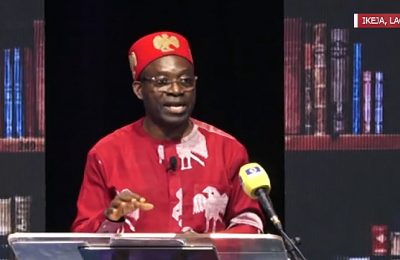Amid the ear-splitting national calls for displacement of the 1999 constitution and the presidential system for an onward return to the parliamentary system, IMOLEAYO OYEDEYI examines whether the transition if carried out will address the country’s socio-political problems.
NIGERIA is in dire straits. Even the current government has publicly admitted to the pitiable state of the economy as the country is being pummelled on all fronts by socio-political and economic crises. In response to the multi-layered challenges plaguing the country, many political observers and elder statesmen in the country have offered various medicinal formulae and measures which they believed if taken could cure the supposed giant of Africa and rescue it from consistent retrogression into embarrassing decline.
But while some of the observers, in their approaches, have starkly traced the country’s misfortune to lack of political will on the parts of successive leadership, others have argued that no person, no matter how strong-willed, can rescue the country from the threshold of misery except by trashing the 1999 constitution and the distorted federalism it currently operates.

Those of this school of thought said the extant constitutional framework of the country is not only flawed, but also cancerous and that not until it is discarded that the country can attain the lofty heights and dreams of the founding fathers. A former National Chairman of the All Progressives Congress (APC), Chief Bisi Akande, is one of those that have recently made a vicious condemnation of the current constitution.
1999 constitution, greatest misadventure of Nigeria
Speaking at the presentation of a book entitled “Nigeria: the Path We Refused to Take” written by Basorun Seinde Arogbofa in Akure, the Ondo State capital in July, 2017, the former Osun State governor had described the 1999 Constitution as the greatest misadventure of the country, saying that the law cannot make the progress of Nigeria work.

“The 1999 Constitution is Nigeria’s greatest misadventure since Lugard’s amalgamation of 1914. The constitution puts emphasis on spending rather than making money, thereby intensifying the battles for supremacy between the legislature and the executive. At the same time, the judiciary is being corruptly tainted and discredited.
“The Constitution breeds and protects corrupt practices and criminal impurities in governance. The 1999 Constitution can never be beneficially reviewed and the ongoing piecemeal adjustments or amendments can only totally blot the essence of national values and accelerate the de-amalgamation of Nigeria.
“All the angels coming from heavens cannot make that Constitution work for the progress of Nigeria. It should only be scrapped as a bad relic of military mentality; it ought to be temporarily replaced with the 1963 Republican Constitution to enable a transition to the writing of a suitable constitution.
“Otherwise, the 1999 Constitution would continue to dwarf Nigeria’s economy and stifle the country’s social structure pending a disastrous and catastrophic bankruptcy,” Chief Akande had said.
Why past constitution amendment failed
It is on record that since the country returned to constitutional democracy in 1999, several attempts in form of amendments have been made by successive national legislative assemblies to correct some of the brutal defects that make the 1999 constitution a cog in the country’s progress, but the various constitution altercation processes, despite gulping billions of naira, have sadly ended in futility.
It will be recalled that at the twilight of its reign, the Goodluck Jonathan-led administration convoked a national conference in 2014 in an effort to produce a more acceptable constitution for Nigeria. But up till today, the report of the conference that was said to have provided solutions to the problematic 1999 Constitution is gathering dusts on a shelf in the office of Nigeria president. According to reports, the eighth NASS Constitution Review Committee proposed about 33 alterations for the 1999 constitution, which were drawn from 27 bills. But while 29 of them were reportedly approved by the federal parliament, only about 17 of the amendments scaled through at the state Houses of Assembly, which among other complicit factors eventually led to the wanton collapse of the process and again put the country on another endless search for constitutional breakthrough.
Recently, the tenth NASS inaugurated another amendment process for the troubled 1999 constitution, which the Deputy Speaker of the Federal House of Representatives, Honourable Benjamin Kalu, said would be completed in December, 2025. Even though Kalu said the new 1999 Constitution Review Committee, having been inaugurated on February 26, 2024, has so far received about 40 amendment bills, many observers have continued to fault the repeated constitutional amendment processes, describing them as a mere waste of time and huge national resources.
Celebrated legal icon and founder of Afe Babalola University Ado-Ekiti (ABUAD), Aare Afe Babalola, has been one of the famous voices castigating the obvious pointless amendment process, which he said should rather be replaced with a deliberate and rigorous exercise that would birth a new and truly federal constitution for the country. Like many others, the Senior Advocate of Nigeria (SAN) has argued that what the country needs at the moment is not another costly but baseless attempt to amend the 1999 constitution, but a national conference where stakeholders would discuss and agreed on a new document for the country.
Babalola, in a recent statement entitled, “Proposed Amendment to the 1999 constitution by the National Assembly: a futile exercise”, explained that the national assembly must summon the courage to save the country from collapse by commencing immediately the process of giving Nigerians a new federal constitution that would lead to a parliamentary system of government like it was in 1963.
He said: “The truth is that there is no way the National Assembly can amend the 1999 constitution to cure the inherent defects in the 1999 constitution. First, you cannot cure fraud. Second, it is impossible, by way of amendment, to take away the military system of government under the 1999 constitution or the power and control of public funds by the President. Or can we, by way of amendment, change the judicial powers of the President under the 1999 constitution?
“The root cause of our problems, which has brought Nigeria to the brink of extinction, is the 1999 constitution foisted on it by the Military when it was exiting the reign of governance in 1999. The fact remains that you cannot amend a Coconut tree that has no branches to become an Iroko tree that has branches. It is a well-known fact that everything about the 1999 constitution is wound around the Presidential system of government.
“Why then is the National Assembly afraid of calling a National Constitutional Conference to fashion out a new true federal constitution and come up with a parliamentary system of government like we had in 1963. Alternatively, since the amendment in law includes substitution for an existing document, why is it that the National Assembly cannot call for a Public Hearing on the substitution of the 1999 constitution for the 1963 constitution which was made with the consent of the people?
“The proposed amendment to the 1999 constitution, whichever way you look at it, is a futile exercise. We all know that previous sessions of National Assembly had made laws to convene National Conference. I, therefore, advise that the current National Assembly should call for a National Conference to discuss and make a new true federal constitution which will provide for a Parliamentary system of government,” Chief Babalola added.
The Patriots’ call
In a similar vein, some elder statesmen and thought leaders under The Patriots recently gave further steel to the national cry for total abolishment of the 1999 constitution when they met at the llupeju, Lagos Chamber of the founding chairman of the body, the late legal luminary, Chief FRA Williams.
The leaders, which included a former Secretary General of the Commonwealth of Nations and current chairman, Chief Emeka Anyaoku; foremost nationalist, Chief Ayo Adebanjo (Secretary), former Minister of Finance, Dr Kalu Idika Kalu, and Chief Tokunbo Williams among others, called for the convening of a constituent assembly to draft a new constitution that captures the wishes and aspirations of the people, describing the current constitution as fraudulent document.
They said: “We want President Bola Tinubu to take the initiative to convene constituent assembly on a non-partisan basis. The Constituent Assembly should draft the new constitution and once the majority of our citizens approve of it the president should sign it. The 1999 Constitution, it must be admitted, is not a people’s constitution. It was imposed on Nigerians by the military. It is not of a Federal nature but a unitary concept of constitution. The federal has power and the state runs to Abuja for allocation. We believe a constitution that is truly Federal will devolve power.
“We are not asking for a review of the 1999 constitution because it is fraudulent and not a people’s constitution. We are advocating the making of a truly Nigerian peoples’ constitution. Also, we accept the reality of President Ahmed Bola Tinubu’s administration whose legitimacy derives from the judgment of the highest judiciary court in our land on the country’s 2023 national elections.
“We are very concerned at the current lamentable state of affairs in our country including the declining sense of national unity, the insecurity of life and property, the increasing poverty and unemployment afflicting our citizens, especially the youth.
“Experience over the last 30 years has shown that despite the declared best intentions of our governments, Nigeria’s unity, internal security and economy have continued to deteriorate. In our view, the reason is that our governments have continued to scratch the surface instead of addressing the fundamental issue of the governance system which flows from the constitution of the country.
“We believe that President Tinubu’s government has a historic opportunity and responsibility for fixing this fundamental challenge. If he, like the previous governments makes the mistake of avoiding to effect the necessary fundamental change by bringing in a new people’s constitution, Nigeria will inevitably continue its present dangerous decline. Only a truly Federal Constitution as was agreed by Nigeria’s founding fathers will give the country a chance of tackling its current challenges effectively.”
Corroborating The Patriots recently, a former deputy national chairman of the Peoples Democratic Party (PDP), Chief Bode George, also said that the 1999 constitution of Nigeria cannot take the country to its Promise Land.
The PDP chieftain disclosed this while featuring as a guest speaker at the Fifth Year Lecture organised by SWAAYA Limited, publishers of the Freedom Online news platform recently.
He said: “Having served that long in the military, I can authoritatively confirm to you that the Nigerian constitution is absolutely military in the setting. In the military, orders come from top to bottom. But in a democratic dispensation, powers come from the people (bottom) to the top. But we have copied the American constitution, that’s why things are not working. We must be deceiving ourselves if we think that this constitution will take us to the Promised Land.”
Why 60 lawmakers harped on parliamentary system
Meanwhile, in furtherance of the ongoing attempt of the tenth NASS Constitutional Review Committee to amend the 1999 constitution, about 60 members of the House of Representatives recently said the amendment should result in a transition from the current presidential system to the parliamentary system of government for the country.
Led by a lawmaker representing Lagos State under the All Progressives Congress, Wale Raji, the lawmakers identified the need for reducing the cost of government, and robust policy debates among others as reasons for demanding a return to the parliamentary system.
Entitled, ‘The Bills Proposing Constitutional Alterations for a transition to Parliamentary System of Government,’ the bill was sponsored by the House Minority Leader, Kingsley Chinda, and 59 others and read for the first time on the floor of the House during Wednesday’s plenary session in Abuja.
The lawmakers – drawn from different party affiliations, anchored their positions on the need to adopt a parliamentary system at the Federal, State, and Local Government levels.
Addressing a press conference at the National Assembly Complex recently, the spokesman for the sponsors and member representing Kebbe/Tambuwal Constituency, Sokoto State, Abdulsamad Dasuki said that when passed, it would significantly impact the national political landscape.
He said, “Our founders in their wisdom and a political atmosphere devoid of compulsion, and having considered the interests of their native peoples and their desire to live together in a country where truth and justice reign, where no man is oppressed, and where all citizens live in peace and plenty, adopted the parliamentary system of government.
“That was the governance system of the First Republic, a period when legislative and executive powers were exercised by the representatives of the people in parliament and the executive, and by the nature of the system, these representatives were accountable to the people.
“For six years while it was in operation, the system worked for the country. The collapse of the First Republic and the long stretch of military rule culminated in the adoption of a new system of government, theoretically fashioned after the presidential system of the United States but in practice, imbibed the uttermost attributes of military rule.
“No wonder the Nigerian President appears to be one of the most powerful presidents in the world. Over the years, the imperfections of the presidential system of government have become glaring to all, despite several alterations to the constitution to address the shortcomings of a system that has denied the nation the opportunity of attaining its full potential.
“Among these imperfections are the high cost of governance, leaving fewer resources for crucial areas like infrastructure, education, and healthcare, and consequently hindering the nation’s development progress, and the excessive powers vested in the members of the executive, who are appointees and not directly accountable to the people.
“The bills presented today (Wednesday) seek a return to the system of government adopted by our founders, which made governance accountable, responsible and responsive, and ultimately less expensive,” the lawmakers added.
Task before Tinubu
But speaking with Sunday Tribune, a professor of Political Science and former Secretary-General of the African Association of Political Science, Professor Adele Jinadu, said amid the ear-splitting national calls for a displacement of the 1999 constitution and the presidential system for an onward return to the parliamentary system, the federal government must first historically find out why the parliamentary and republican constitutions which the country once practised failed, and that the outcome of the investigation will provide a better understanding on how to embark on a fresh constitutional and political system for the country.
“I have always said that it is not the system that matters, whether it is a parliamentary or a presidential system, but the attitude of those who are operating the system. And you know if we go back to history itself, you will know that we have had a parliamentary system before, between 1961 and 1966. But that system failed, this was why there was a coup in January 1966. So, those who are asking for us to go back to it must first address some of the reasons why the system initially collapsed. But to me, the system failed because we had two levels of executives then: one at the federal level, where we had a governor-general, and the second one at the regional level where we had the lieutenant governors. At the regional level, our nationalists at that time were not happy to have a lieutenant governor, who was overruling them. So that was why that constitution failed,” the political scientist stated.







